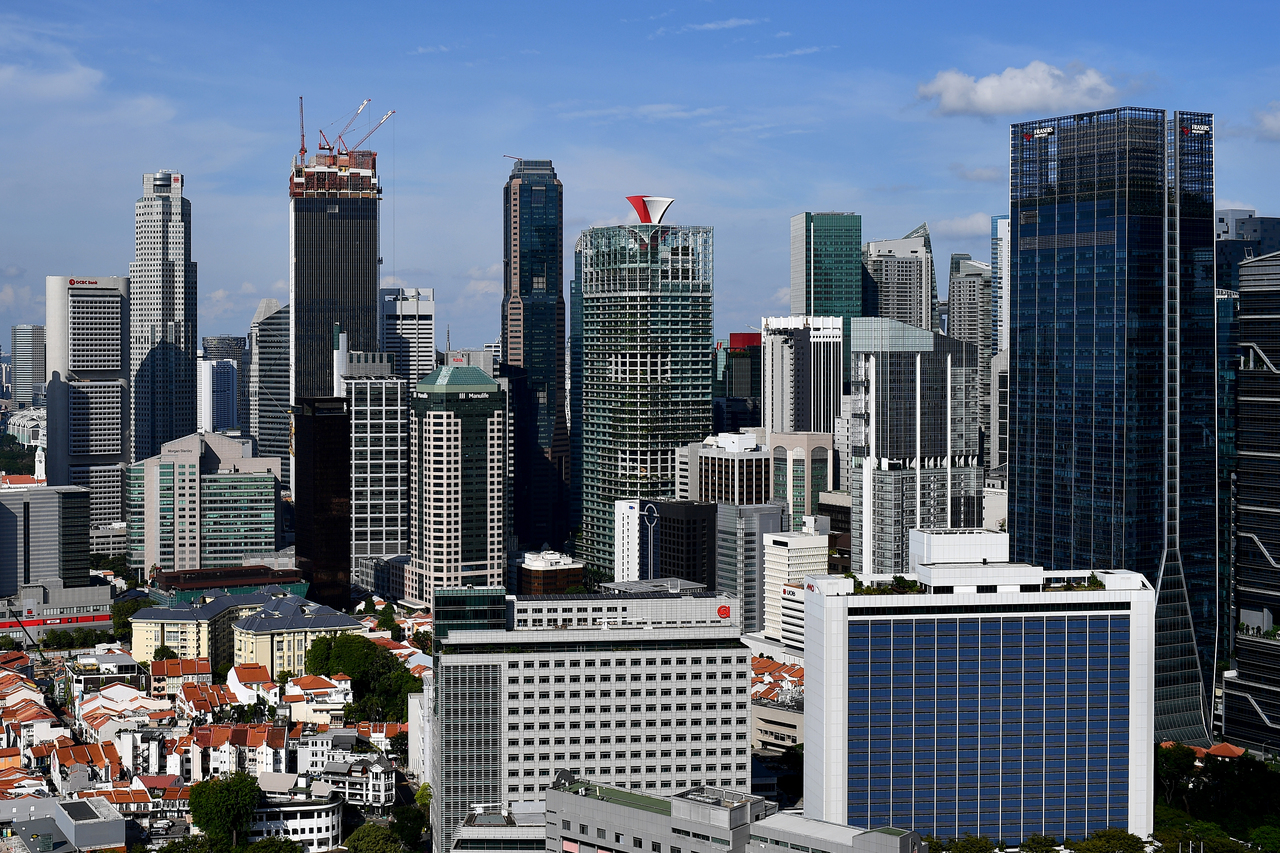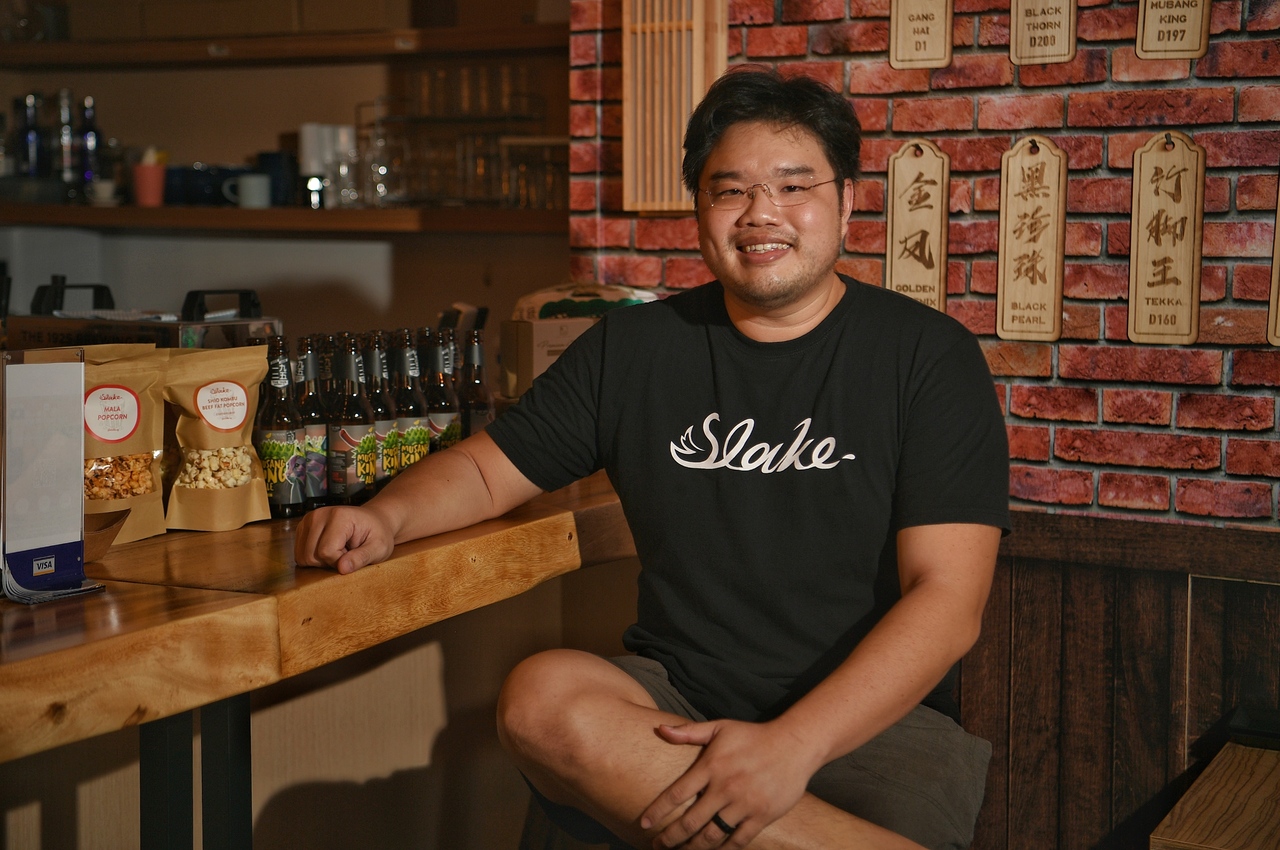Temporary bridging loan, enhanced enterprise financing schemes for SMEs extended till March 2022
Sign up now: Get ST's newsletters delivered to your inbox

The Temporary Bridging Loan Programme and the Enhanced Enterprise Financing Scheme will be extended.
ST PHOTO: LIM YAOHUI
Follow topic:
SINGAPORE - Small and medium-sized enterprises can continue to access credit to build their capabilities with the extension of two schemes, said Finance Minister Lawrence Wong in Parliament on Monday (July 5).
The Temporary Bridging Loan Programme and the Enhanced Enterprise Financing Scheme - Trade Loan will be extended for an additional six months from Oct 1 this year to March 31, 2022. They were previously extended in October last year, from April 1 to Sept 30.
"For many SMEs, access to credit is a critical lifeline to tide them through this crisis... While economic conditions have improved, such access to credit remains critical to our SMEs," said Mr Wong in a ministerial statement on the support measures for businesses and workers affected by the latest Covid-19 measures.
The Temporary Bridging Loan Programme is aimed at helping local companies manage their immediate cash-flow needs, while the Enhanced Enterprise Financing Scheme - Trade Loan covers businesses' trade needs in areas such as inventory and stock financing.
The Government has supported over $22 billion worth of loans to more than 25,000 enterprises through Enterprise Singapore's (ESG's) financing schemes since the start of last year, said Mr Wong, adding that 99 per cent of the recipients were SMEs.
About half were in wholesale trade (20 per cent), construction (16 per cent) and manufacturing (13 per cent), with other sectors such as services and retail also supported, said ESG in a separate statement on Monday.
The parameters for both schemes remain unchanged, including the government risk-share of 70 per cent as well as the maximum loan quantum of $3 million for the Temporary Bridging Loan Programme and $10 million for the Enhanced Enterprise Financing Scheme - Trade Loan.
Mr Png Cheong Boon, chief executive of ESG, said that enterprises have tapped the financing offered through the government agency's loan schemes to sustain their immediate operations over the years.
He added: "However, uncertainties remain even as we work towards a new normal with the Covid-19 situation."
The extension of the two schemes "is meant to ensure that businesses continue to have access to financing so that they can upgrade their operations, build new business capabilities, pivot to new business models and grow sustainably," he said.
The Monetary Authority of Singapore (MAS) will also extend accordingly the MAS Singapore Dollar Facility for Enterprise Singapore Loans, which provides lower-cost funding for banks and finance companies to support their lending to local enterprises.
The facility will continue to provide Singapore dollar funding at an interest rate of 0.1 per cent per annum for a two-year tenor to eligible financial institutions, to support loans made under the Temporary Bridging Loan Programme and Enterprise Financing Scheme - SME Working Capital Loan, which finances operational cash flow needs, from Oct 1 to March 31 next year, said MAS on Monday.
It added that the facility has disbursed a total of $13.3 billion to such financial institutions to support their lending to companies under the schemes since its introduction in April last year.
"Collectively, the Government's risk sharing through the ESG loan schemes and MAS' lower-cost funding through the facility will continue to keep borrowing costs low for local enterprises, as they recover and adapt to the new normal," said MAS.
Meanwhile, ESG said it is also working with industry partners to provide additional resources to guide SMEs on their financing needs and strengthen their financial knowledge.
This includes stationing special advisers at SME Centres - at the Singapore Manufacturing Federation, Singapore India Chambers of Commerce and Industry and Singapore Malay Chambers of Commerce and Industry.
The government agency added that it has also co-developed a course with professional services firm PwC for SME leaders to acquire effective financial management skills to help them better strategise and grow their businesses in the new normal.
Mr Wong said: "I encourage businesses to make use of this extension and other available schemes to ready themselves for the new normal. Many of our SMEs have already seized the opportunity to build new capabilities and future-proof their businesses."
He cited the example of food and beverage outfit Slake, which started out in 2014 as a neighbourhood bistro in Siglap.
The business pivoted to online orders in 2017 by taking up the Productivity Solutions Grant which supports companies in adopting IT solutions and equipment to enhance business processes.

Pix of Mr Jeremy Cheok, 36, founder and co-owner of Slake restaurant. For side profile to story on Finance Minister Lawrence Wong's speech which mentions the F&B business.
PHOTO: ST
The firm's investments paid off during last year's circuit breaker, said Mr Wong.
"Since then, Slake has doubled down on their efforts to go digital. They took up the Enterprise Development Grant to develop a virtual brand for new revenue streams, tapped the Food Delivery Booster Package, and they recently also expanded their social media marketing."
He added: "The way we have gone about providing support this round, as well as our ongoing support schemes over the years, reflect our fiscal approach in supporting Singaporeans and businesses in Singapore."
The Government has ensured a fair tax regime for all even before the pandemic, he said.
Overall income tax revenue - both corporate and personal - as a percentage of the gross domestic product is around 6 per cent, about half the Organisation for Economic Cooperation and Development average of 12 per cent, he added.
"For individuals, we layer on a progressive system of transfers that provides more help for those in greater need... the bottom 20 per cent of households by income, for example, receive around $4 of benefits for every dollar of tax they contribute," he said.
Mr Wong said that Singapore has a competitive tax regime for companies, especially SMEs, as they are the backbone of the economy.
He added that a global movement to change corporate tax rules will affect only a select group of global companies, and not smaller enterprises. "So our SMEs in Singapore can continue to enjoy low taxes."
Singapore's SMEs - or those with turnover of up to $100 million - make up more than 95 per cent of active companies in Singapore, but they contribute less than a third of the nation's corporate income tax revenue.
More than half of such companies do not pay any corporate tax.
Besides taxes, the Government recognises that SMEs are concerned with business costs such as rental, labour and utilities, said Mr Wong.
"We do not directly offset such costs in normal times, but instead provide a wide range of schemes to help them improve productivity and build new capabilities."
About 70 per cent of government grant disbursements to businesses from 2015 to 2019 went to SMEs.
"During times of crises, we recognise that lower-income households and SMEs face bigger challenges, and that is why we have designed our interventions to benefit them the most," said Mr Wong.
About two-thirds of the $26.7 billion paid out to date under the Jobs Support Scheme went to SMEs, as did 90 per cent of the benefits from the Year of Assessment 2020 corporate income tax rebate.

